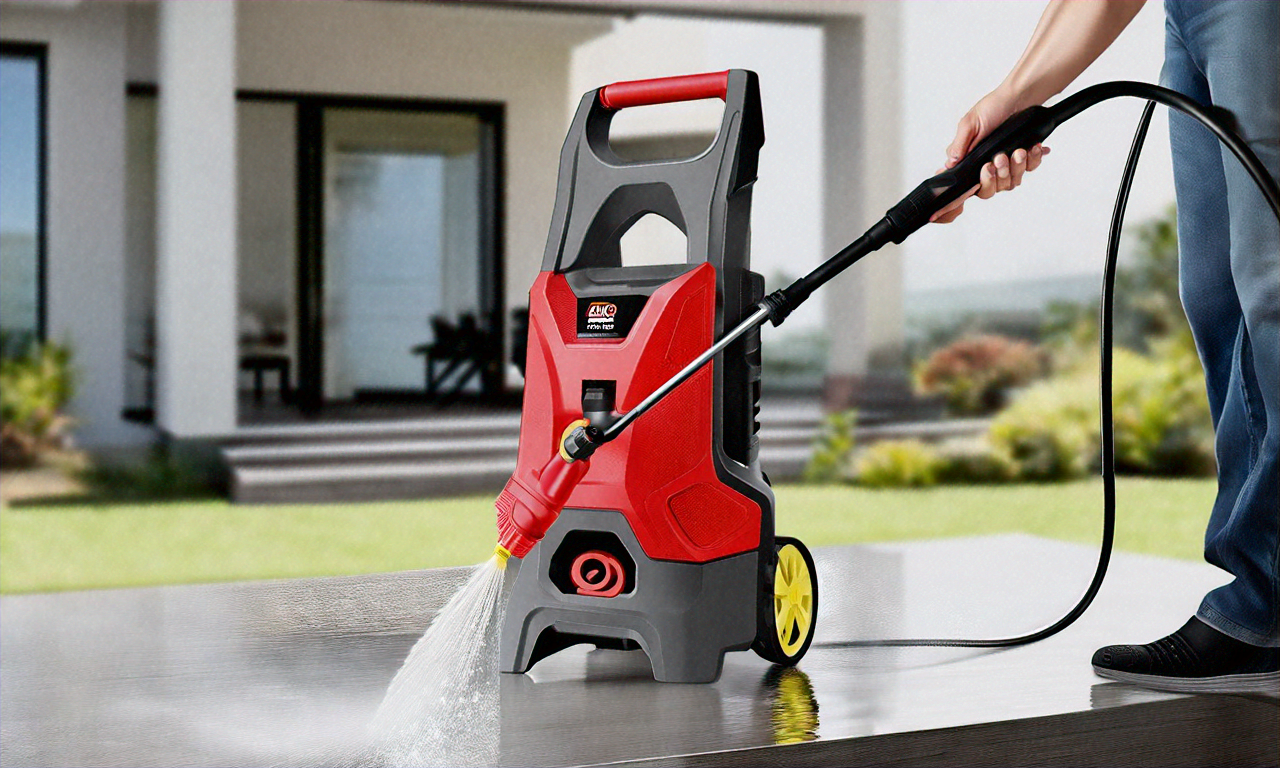Understanding Power Washers and Flexible Payment Options
Power washers have become essential tools for homeowners and professionals seeking efficient cleaning solutions for outdoor surfaces, vehicles, and equipment. Whether you're tackling stubborn grime on driveways, revitalizing weathered decks, or maintaining commercial properties, understanding the features, capabilities, and purchasing options for these machines can help you make informed decisions that fit both your cleaning needs and budget.

What Is a Pressure Washer and How Does It Work
A pressure washer, also known as a power washer, is a mechanical device that uses high-pressure water spray to remove dirt, mold, grime, mud, and other contaminants from surfaces and objects. The machine works by using a motor or engine to power a pump that pressurizes water from a garden hose to create a powerful jet stream. Most residential models produce between 1,300 and 3,000 pounds per square inch (PSI), while commercial-grade units can exceed 4,000 PSI. The combination of pressure and flow rate, measured in gallons per minute (GPM), determines the cleaning power of the unit. Electric models are typically lighter and quieter, making them ideal for small to medium residential tasks, while gas-powered versions offer greater mobility and power for heavy-duty applications.
Key Features to Consider When Choosing a Washer
When selecting a pressure washer, several important features should guide your decision. PSI rating indicates the force of water hitting the surface, while GPM measures the volume of water delivered. Together, these create the cleaning units (CU), calculated by multiplying PSI by GPM, which provides the best indicator of overall cleaning power. Nozzle options are crucial, as different spray patterns suit different tasks: zero-degree nozzles provide concentrated power for tough stains, while 40-degree nozzles offer gentler, wider coverage for delicate surfaces. Additional features include adjustable pressure settings, detergent tanks for soap application, onboard storage for accessories, and wheel configurations for portability. Electric models require less maintenance but need proximity to power outlets, whereas gas models offer independence from electrical sources but require regular engine maintenance including oil changes and spark plug replacements.
Buy Now Pay Later Options for Pressure Washers
Flexible payment solutions have made acquiring quality pressure washers more accessible to consumers who prefer to spread costs over time rather than paying upfront. Buy Now Pay Later programs allow customers to purchase equipment immediately while dividing payments into manageable installments, often with zero or low interest if paid within promotional periods. Major retailers including home improvement stores, online marketplaces, and specialty equipment dealers now partner with financing services to offer these payment plans. Typical arrangements include splitting the total cost into four equal payments over six weeks, or extended financing plans that stretch over 6 to 24 months. Approval processes are generally quick, requiring basic information and a soft credit check that doesn’t impact credit scores initially. This approach benefits those who need equipment urgently but want to preserve cash flow, though it’s important to understand terms, interest rates after promotional periods, and potential late payment fees before committing.
| Payment Provider | Typical Terms | Interest Rate | Eligibility Requirements |
|---|---|---|---|
| Affirm | 3-36 months | 0-30% APR | Credit check, 18+ years old |
| Klarna | 4 payments or 6-36 months | 0-29.99% APR | Soft credit check, valid payment method |
| PayPal Credit | 6 months special financing | 0% if paid in full within 6 months, then 23.99% APR | PayPal account, credit approval |
| Synchrony Home | 6-24 months | Promotional 0%, then 26.99% APR | Credit approval, participating retailers |
| Progressive Leasing | 12 months lease-to-own | No interest but higher total cost | No credit needed, income verification |
Prices, rates, or cost estimates mentioned in this article are based on the latest available information but may change over time. Independent research is advised before making financial decisions.
Maintenance and Safety Considerations for Your Washer
Proper maintenance extends the lifespan of your pressure washer and ensures safe operation. After each use, flush the system with clean water to remove detergent residues and prevent pump damage. Store the unit in a dry, frost-free location, as freezing temperatures can crack pumps and hoses. For gas models, use fuel stabilizer if storing for extended periods and check oil levels regularly. Inspect hoses and connections for wear, replacing damaged components immediately to prevent dangerous blowouts. Safety precautions are paramount: never point the spray at people or animals, as the high pressure can cause serious injuries including skin penetration and eye damage. Wear protective eyewear and closed-toe shoes during operation. Test spray patterns on inconspicuous areas first to avoid surface damage, particularly on wood, painted surfaces, and older masonry. Maintain proper distance from the surface being cleaned, typically 6 to 12 inches for most applications, adjusting as needed based on material sensitivity and dirt severity.
Common Applications and Surface-Specific Techniques
Pressure washers excel at numerous cleaning tasks around homes and businesses. Concrete driveways and sidewalks respond well to high-pressure settings with rotating turbo nozzles that provide consistent cleaning patterns. Wooden decks require lower pressure settings, typically 500-600 PSI, combined with wider spray angles to prevent splintering and grain damage. Vehicle washing demands even gentler approaches, using foam cannons and 40-degree nozzles at distances of 12 inches or more to protect paint and trim. Vinyl siding benefits from bottom-to-top cleaning with detergent application followed by top-to-bottom rinsing to prevent streaking. Brick and stone surfaces can handle moderate to high pressure but require attention to mortar condition, as deteriorated joints may erode further under intense spray. Outdoor furniture, fences, and playground equipment each present unique challenges requiring pressure and nozzle adjustments. Understanding these application-specific techniques maximizes cleaning effectiveness while minimizing the risk of damage to valuable surfaces and property.
Comparing Electric and Gas-Powered Models
The choice between electric and gas-powered pressure washers depends on specific needs, usage frequency, and available resources. Electric models typically range from 1,300 to 2,000 PSI and are well-suited for light to medium residential tasks including patio furniture cleaning, vehicle washing, and small deck maintenance. They operate quietly, produce no emissions, require minimal maintenance, and cost less initially, with prices generally between 100 and 300 dollars for quality units. However, they depend on electrical outlets, limiting range and mobility. Gas-powered washers deliver 2,500 to 4,000 PSI or higher, making them ideal for large properties, commercial applications, and heavy-duty cleaning of driveways, large decks, and building exteriors. They offer unlimited mobility and sustained power for extended use but require regular maintenance, produce exhaust fumes, and generate more noise. Initial costs range from 300 to over 1,000 dollars depending on specifications. Evaluating your typical cleaning tasks, property size, and budget helps determine which type provides the best value and performance for your circumstances.
Making an Informed Purchase Decision
Acquiring the right pressure washer involves balancing performance requirements with budget constraints and payment flexibility. Assess your primary cleaning needs to determine appropriate PSI and GPM specifications, avoiding the temptation to over-purchase power you won’t regularly use. Research reputable brands known for reliability and customer support, reading verified user reviews to understand real-world performance and durability. Compare warranty coverage, as longer warranties often indicate manufacturer confidence in product quality. When considering Buy Now Pay Later options, calculate total costs including any interest charges, compare offers from multiple financing providers, and ensure monthly payments fit comfortably within your budget. Verify return policies and satisfaction guarantees before finalizing purchases. By combining thorough research with realistic assessment of your cleaning requirements and financial situation, you can select a pressure washer that delivers effective performance while maintaining financial flexibility through manageable payment arrangements.




